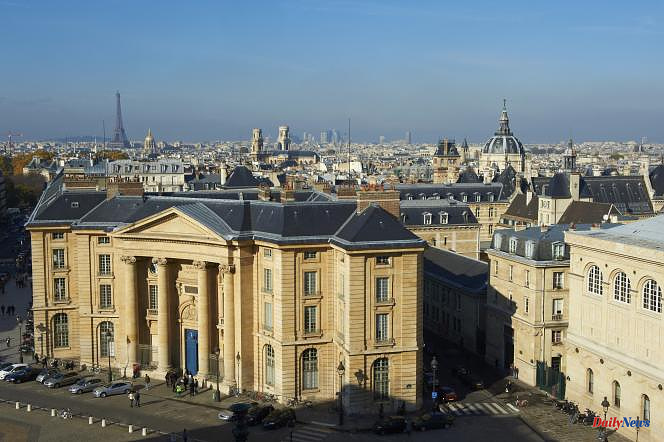The London firm Quacquarelli Symonds (QS) published, on Wednesday March 22, its annual world ranking of universities by disciplinary field. This year again, American universities are well ahead of this list, dominating the ranking in 32 subjects. Harvard University is the "best performing" institution, ranking first in 14 disciplines. The British follow by arriving first in about fifteen disciplines, Oxford and Cambridge in the lead. In continental Europe, ETH Zurich gives Switzerland first place in three areas (geophysics, geology and earth and marine sciences).
Out of nearly 1,600 universities ranked in 93 countries, 73 French establishments are included, compared to 75 in 2022. This ranking is divided into five major fields (arts and humanities, engineering and technology, life sciences and medicine, natural sciences and social sciences and management) and 54 disciplines.
However, some French establishments retain the places of honor they have occupied for several years. A list, which, according to the authors, is based in particular on academic reputation, the citation rate of the publications produced, the networks of international research partnerships.
"Maintaining an excellent standard of research"
Thus, the European Institute of Business Administration (INSEAD), a private management school, maintains its second place in business studies and management; HEC ranks 6th in marketing and 10th in business and management studies. The National Conservatory of Music and Dance of Paris (CNSMDP) also made it to the podium, in second place, in the "performing arts" category. Sciences Po is ranked third in "politics and international studies". Five years ago, in 2018, these three French establishments were already among those which received the best evaluation from the British cabinet.
“We have entered a virtuous circle, which allows us to maintain an excellent level of research and therefore to attract the best teachers and then the best students. And we strive to stay there in international competition,” said Urs Peyer, Dean of Education in charge of the MBA program at INSEAD.
Ditto at Sciences Po, where the maintenance for several years of the Parisian school on a world podium in its specialty is, according to its director, Mathias Vicherat, “the demonstration that the establishment has succeeded in its transformation. From a Franco-French institution, Sciences Po has become an international research and teaching university”. As for its ranking, it contributes to the attractiveness of the school in the world, both for teachers and for students: "It is important when 50% of our students are international and our competitors are the largest American universities, whose financial means are ten times ours”, underlines Mr. Vicherat.
Three Ile-de-France residents in the top 30
Even if they do not appear on a podium of a QS ranking by discipline, three universities in the Ile-de-France stand out by ranking in the top 30 in several areas: these are Sorbonne University and Paris-I-Panthéon-Sorbonne in several science and humanities specialties, as well as Paris-Saclay, 27th in engineering – electrical and electronics, 26th in agriculture; 17th in physics and astronomy and 16th in mathematics. A progression that follows that of the establishment in another ranking, that of Shanghai, in 2020, when for the first time a tricolor university entered the top 15 of a world ranking.
"This is a reflection of our work to bring together higher education establishments in the territory, explains Jean-François Peyrat, vice-president of management at the University of Paris-Saclay. The various entities of Paris-Saclay have responded in a consistent manner to the feedback of data from the work of our laboratories, our researchers, their publications which are used to evaluate schools and universities. As one, Paris-Saclay has appeared on the radars of major international universities.
But the gap between the means of the Anglo-Saxon establishments, which monopolize the first places in the rankings, and the best French ones remains considerable. "We can compete with Harvard in mathematics, but in other areas we need substantial budgets that the French public university does not have," recalls Mr. Peyrat. We will gain ground with a greater involvement of industries in our establishments. Innovation and technology transfer must take their place in our universities. »












